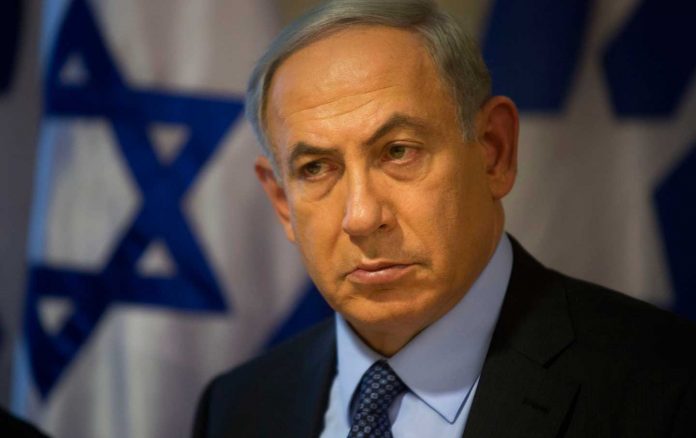By Siddhant Mohan, TwoCircles.net
Benjamin Netanyahu, the Prime Minister of Israel, is all set to visit India on Sunday for bilateral talks with the Indian government. The visit of Narendra Modi’s counterpart is controversial and is likely to face protest in India as always.
The core committee of the leading Islamic body Jamiat Ulama-i-Hind comprising prominent social religious and political leaders decided on January 10 to oppose the visit of Israeli Prime Minister Benjamin Netanyahu to India scheduled to begin on January 14.
The meeting, which was held in India Islamic Cultural Centre, was attended by a number of prominent parliamentarians, leaders of Muslim organisations, intellectuals and Arab diplomats and Ambassadors.
The participants, while throwing light on India’s historically held position about Palestine, felt it necessary to express solidarity with people of Palestine and to protest against the visit of the Prime Minister of a country whose hands are stained with the blood of innocent Palestinians.
JUH’s General Secretary Maulana Mahmood Madani said, “Being Indians, it matters us that how much our changing foreign policy is going to impact the reputation of our country,” during the Core Committee meeting held earlier last week.
However, the meeting appreciated India’s vote in United Nation in support of Palestine, which followed the US president’s controversial remark on the Jerusalem. Citing India’s vote in UN, JUH announced to send a letter of appreciation to the Prime Minister of India, Ministry of Foreign Affairs and National Security Advisor. The meeting expressed satisfaction over the fact the government of India finally paid heeds to concerns of its peace-loving citizens.
Few hours before his departure towards India, Israeli Prime Minister Benjamin Netanyahu issued a press statement saying that he intends to “further strengthen ties between the two countries.” He also counted the trip as an “opportunity to cement cooperation with a world power in the areas of trade, security, technology, and tourism.”
Benjamin Netanyahu – who is off to India with his wife leading 130 membered trade delegation – has long been known to have a sectarian approach against the Muslim community. Moreover, there have been many instances when Israel’s pro-Jewish government was found interfering the press, which made its world press freedom ranking 93 on its territory and 161 on its Palestinian authority.
Navaid Hamid, the president of All India Majlis-e-Mushawarat said, “If the Netanyahu is set to visit India only for trade purposes, I would say that they are seeking a way to dump Israeli goods in Indian markets.”
“India is long known to have a free and fair view towards Palestine. In light of that, if people are protesting against his visit which is fair. Even the government itself should think twice to have any sort of relationships with the country,” said Hamid.
“Both Indian as well Israeli governments have the sectarian approach towards the Muslims and minorities, and the protest is likely to happen. I don’t see anything bad in this,” said Lenin Raghuvanshi, a Human rights activist based in Varanasi.
Raghuvanshi added, “You see, the human rights violation against the press, literary personalities, filmmakers and free thinkers in Israel, same sort of gagging has been happening in India. India should stand by its views towards Palestine.”
Days before Netanyahu’s visit, cases including serious charges of fraud, breach of trust and accepting bribe surfaced against the Israeli PM. Israel has seen several rallies hitting the streets demanding resignation from the Israeli Prime Minister. However, authorities in Israel are waiting for a month or two to lodge any formal case against Netanyahu.

